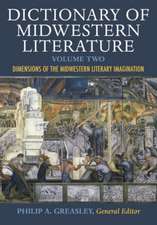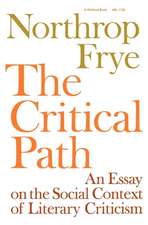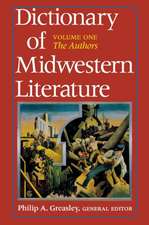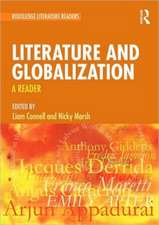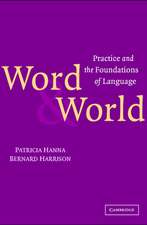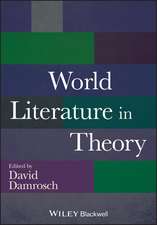What Is Fiction For? – Literary Humanism Restored
Autor Bernard Harrisonen Limba Engleză Paperback – 28 dec 2014
How can literature, which consists of nothing more than the description of imaginary events and situations, offer any insight into the workings of "human reality" or "the human condition"? Can mere words illuminate something that we call "reality"? Bernard Harrison answers these questions in this profoundly original work that seeks to re-enfranchise reality in the realms of art and discourse. In an ambitious account of the relationship between literature and cognition, he seeks to show how literary fiction, by deploying words against a background of imagined circumstances, allows us to focus on the roots, in social practice, of the meanings by which we represent our world and ourselves. Engaging with philosophers and theorists as diverse as Wittgenstein, Sartre, Merleau-Ponty, Foucault, Derrida, F. R. Leavis, Cleanth Brooks, and Stanley Fish, and illustrating his ideas through readings of works by Swift, Woolf, Appelfeld, and Dickens, among others, this book presents a systematic defense of humanism in literary studies, and of the study of the Humanities more generally, by a distinguished scholar.
| Toate formatele și edițiile | Preț | Express |
|---|---|---|
| Paperback (1) | 244.92 lei 6-8 săpt. | |
| MH – Indiana University Press – 28 dec 2014 | 244.92 lei 6-8 săpt. | |
| Hardback (1) | 522.27 lei 6-8 săpt. | |
| MH – Indiana University Press – 28 dec 2014 | 522.27 lei 6-8 săpt. |
Preț: 244.92 lei
Nou
46.87€ • 49.03$ • 38.93£
Carte tipărită la comandă
Livrare economică 02-16 aprilie
Specificații
ISBN-10: 0253014085
Pagini: 620
Dimensiuni: 152 x 229 x 15 mm
Greutate: 0.9 kg
Editura: MH – Indiana University Press
Notă biografică
Bernard Harrison is Emeritus E. E. Ericksen Professor Philosophy at the University of Utah and Emeritus Professor in the Faculty of Humanities, University of Sussex, UK. He is author of Inconvenient Fictions: Literature and the Limits of Theory; The Resurgence of Anti-Semitism: Jews, Israel, and Liberal Opinion; and (with Patricia Hanna) Word and World: Practice and the Foundations of Language.
Descriere
How can literature, which consists of nothing more than the description of imaginary events and situations, offer any insight into the workings of "human reality" or "the human condition"? Can mere words illuminate something that we call "reality"? Bernard Harrison answers these questions in this profoundly original work that seeks to re-enfranchise reality in the realms of art and discourse. In an ambitious account of the relationship between literature and cognition, he seeks to show how literary fiction, by deploying words against a background of imagined circumstances, allows us to focus on the roots, in social practice, of the meanings by which we represent our world and ourselves. Engaging with philosophers and theorists as diverse as Wittgenstein, Sartre, Merleau-Ponty, Foucault, Derrida, F. R. Leavis, Cleanth Brooks, and Stanley Fish, and illustrating his ideas through readings of works by Swift, Woolf, Appelfeld, and Dickens, among others, this book presents a systematic defense of humanism in literary studies, and of the study of the Humanities more generally, by a distinguished scholar.
Cuprins
Introduction
PART I: Getting Real
1. Humanism and its Discontents
2. The Mirror of Nature
3. Truth, Meaning and Reality
4. Leavis and Wittgenstein (I): A Living Language
5. Leavis and Wittgenstein (II): The "Third Realm"
PART II: Character, Language and Human Worlds
6. Nature and Artifice
7. Virginia Woolf and "The True Reality"
8. Aharon Appelfeld and the Problem of Holocaust Fiction
9. The Limits of Authorial License in Our Mutual Friend
PART III: Against "The Meaning of the Work"
10. Reactive versus Interpretive Criticism
11. Houyhnhnm Virtue
12. Sterne and Sentimentalism
PART IV: The Skeptic Side
13. Reanimating the Author
14. Persons and Narratives
15. Reading and Reading-In
16. Meaning It Literally: Derrida and his Critics Revisited
Epilogue: Telling the Great from the Good
Notes
Bibliography
Index




